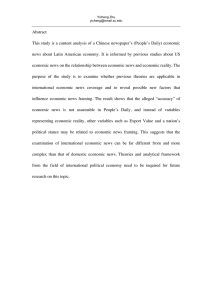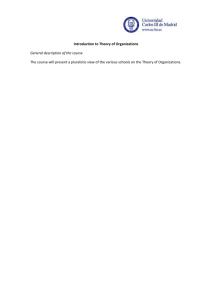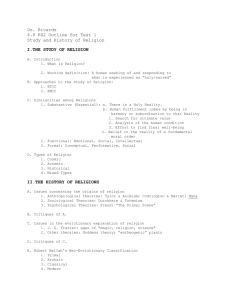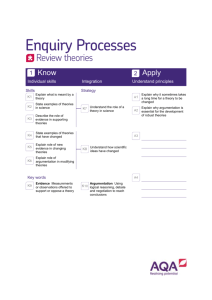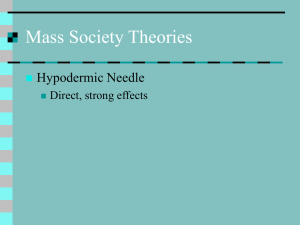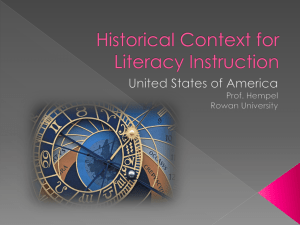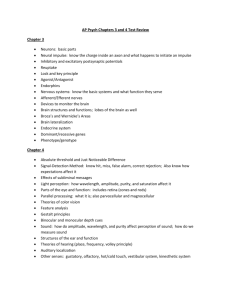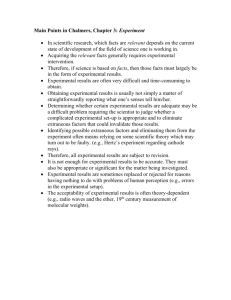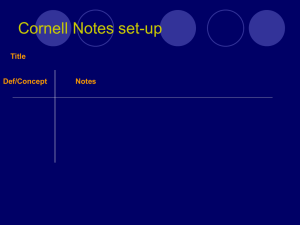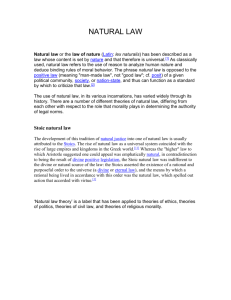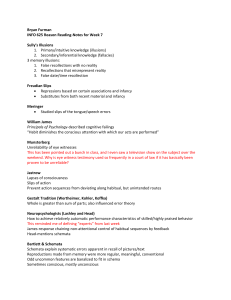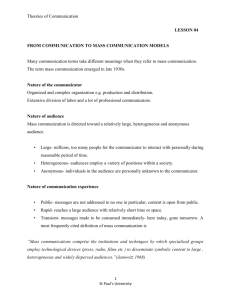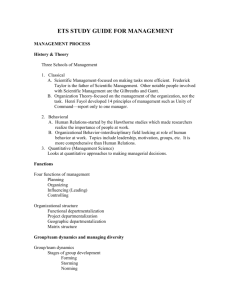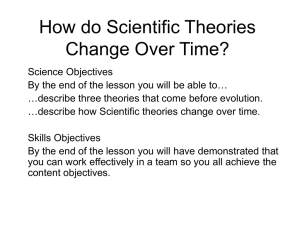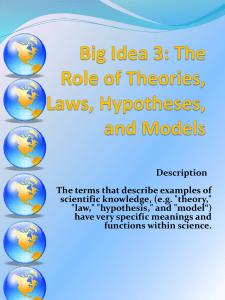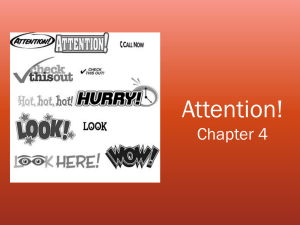Multidimensional Leadership and Change
advertisement
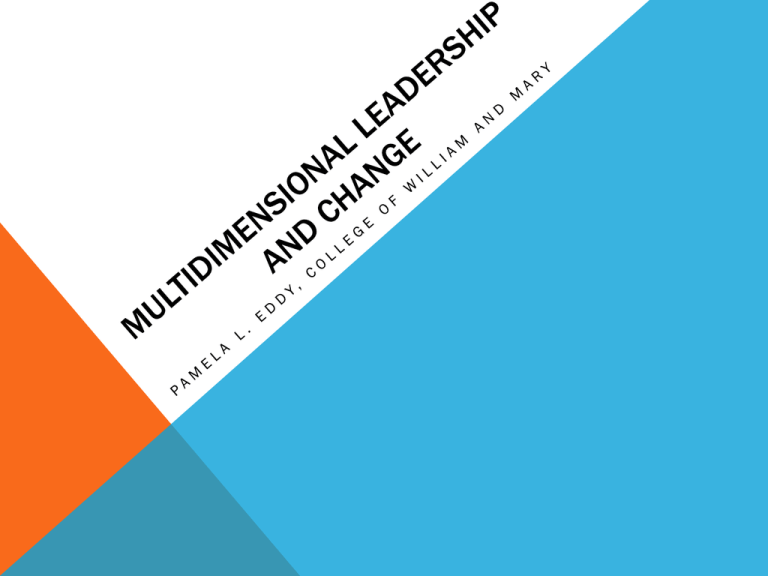
PORTRAIT OF COMMUNITY COLLEGE LEADERS 2011 Asian American AfricanHispanic American 2011 American Indican Other Women Men White LEADERSHIP CRISIS? 71 and older 61-70 2006 51-60 2011 41-50 31-40 0 10 20 30 40 50 60 CONCERNS FOR FUTURE LEADERS Economic Career Preparation—Workforce Development Students • • • • Differences in abilities Developmental education Cultural Swirling students Accountability • How to measure success • Preparation for careers versus jobs SUCCESSION PLANNING—OR NOT Faculty • Retirements • Baccalaureate • Urban/Rural Mid-level Leaders • Sticky floors • Mentoring/tapping Senior Leaders • Development/preparation • Retirements NOT PREPARED FOR… 1. 2. 3. 4. 5. Fund Raising (49.3%) Capital Improvement Projects (31.2%) Risk Management/Legal issues (25.6%) Budget/Financial Management (23.5%) Government Relationships (23.3%) THINKING ABOUT LEADERSHIP LEADERSHIP THEORIES Trait Theories Power and Influence Theories Behavioral Theories Contingency Theories Cultural and Symbolic Cognitive COLLABORATIVE LEADERSHIP Leadership throughout the organization Lateral decision making Systems oriented Learning environment Shared power Inclusiveness/diversity FIVE PROPOSITIONS There is no universal model for leadership. Multidimensional leadership is necessary in complex organizations. Leaders rely on their underlying cognitive schema in making leadership decisions. Leaders often adhere to their core belief structure. Leaders are learners. MULTIDIMENSIONAL LEADERSHIP Leader B Leader A Minding the Bottom Line Inclusivity Competencies Framing Meaning Leader C Systems Thinking Sensemaking & Framing Step-by-Step Top Down Female Visionary Connective Communication Gender Leadership Schema Participatory Male FIRST MODEL SECOND MODEL AACC COMPETENCIES (2005) Organizational Strategy Resource Management Communication Collaboration Community College Advocacy Professionalism CHANGE MODELS Linear Models Process Models Kezar Biological Telelogical Political Life Cycle Social Cognition Cultural CHANGE MODELS Lewin’s Force Field Analysis CHANGE MODELS Kotter and Cohen (2002) CHANGE MODELS Fullan (2006) PEOPLE AND CHANGE Leadership Motivation Implementation Dip Resistance Sustainability CHANGE IN MASSACHUSETTS Among the Boston Foundation’s recommendations: • Create a plan that leverages partnerships with employers and the economic development community and one that includes improved governance, and defined performance metrics that would be tied to funding. • Clarify the mission of community colleges and emphasize their role in meeting labor needs. • Better prepare students for community college work and graduation. • Enhance the role of the Board of Higher Education and the Commissioner of Higher Education in governing the community college system. • Consolidate funding for community colleges into one line item in the budget with further control by the Commissioner of Higher Education. • Launch a Community College Coalition. (Moore, November 20, 2011) CONSIDERATIONS/QUESTIONS Rationale/Urgency Costs/Benefits Economies of Scale Community Voice Have/Have-nots Power Resources PREPARING TO LEAD Get the degree Network/build relationships Get a variety of experiences Fund-raising/budgeting Relationships/partnering Know yourself/know your community PREPARING TO LEAD Think in terms of systems—K-12; CC systems; 4-year universities Creating the story matters Take time for renewal Questions? Pamela Eddy pamela.eddy@wm.edu
